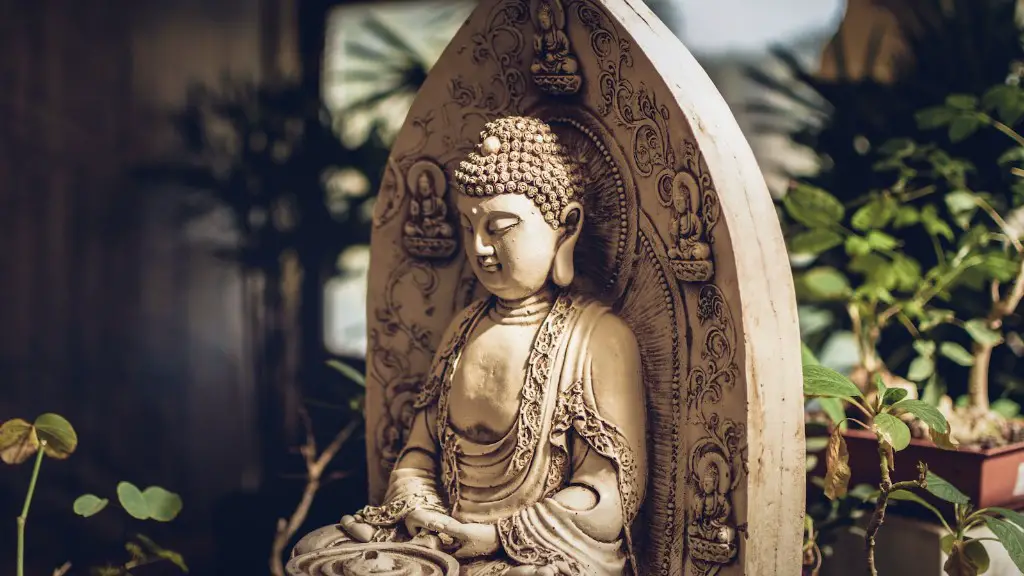What Is Hinduism ?
Hinduism is the oldest major religion in the world, with roots tracing back to the Indus Valley civilization of the 2nd millennium BCE. Adherents of Hinduism are known as Hindus and it is one of the practiced religions within India.
Hinduism is believed to have originated with the idea of natural theism. Natural theism is the idea that the divine is present within and around the natural world. This view dates back to ancient India and is still practiced in Hinduism today. This belief is based on the idea that the divine is ever-present, though not always visible, and that it is the source of all life and creation.
Hinduism has no single founder, but is instead the cumulative product of a variety of sacred texts and traditions that were gradually developed and refined over time. In Hinduism, god is viewed in many forms, with the belief that all forms of god are a manifestation of one ultimate god.
Is Hinduism Monotheistic ?
The exact nature of Hinduism has been a source of debate for centuries, with some people considering it to be a monotheistic religion while others view it as polytheistic. The main point of contention is the notion of one ultimate god as the source of all life, which goes against the idea of multiple gods with varying powers and responsibilities.
Hinduism is generally viewed as being both monotheistic and polytheistic, with the latter being more apparent when considering the numerous gods and goddesses that make up its pantheon. While most Hindus believe in one ultimate god, they also acknowledge multiple gods and goddesses that work in tandem together. This concept is known as ‘henotheism’, which is the belief in multiple gods, while still viewing them as part of one divine source.
Furthermore, Hinduism is not a religion of exclusive deities. Instead, the gods and goddesses all have an underlying unity and are venerated as different aspects of the same divine nature. This is why Hindus often talk of one ultimate god as the source of all gods, as each deity is merely a facet of a single divine power.
The Hindu pantheon consists of numerous goddesses and gods, but they are all considered to be aspects of the same ultimate god. This is why Hindus practice both monotheism and polytheism, depending on the context.
Significance of Hinduism in Modern Times
Hinduism has a long-reaching history and is still widely practiced throughout India and other parts of the world. In modern times, Hinduism has become a popular religion and spiritual practice among many people who seek to bring a sense of purpose and divinity into their lives. People from all walks of life are drawn to Hinduism for its core beliefs of inclusivity and tolerance.
Hinduism is attractive to many because it espouses acceptance of all people, regardless of race, gender, or social status. It is also one of the few religions that does not focus primarily on one god, which allows adherents to explore their relationship to the divine in whatever way they find most meaningful.
Hinduism is also a vibrant, living tradition that constantly evolves and reinterprets its beliefs in light of modern times. This allows Hinduism to remain relevant and accessible to everyone, regardless of their individual spiritual beliefs.
Hinduism and Monotheism
Hinduism can be considered a monotheistic religion in the sense that it believes in one ultimate god as the source of all creation. This god is viewed as an all-encompassing, non-sentient force that pervades everything in the universe. This view is different from monotheism in the Western context, which sees one deity as being separate and distinct from creation.
Hinduism also allows for multiple gods and goddesses that have different powers and responsibilities within the overall scheme of things. This allows Hindus to venerate whichever gods and goddesses they find most meaningful, while viewing them all as part of the same divine source.
Hinduism has its roots in ancient India and is still practiced by millions of people around the world today. It is a complex religion that encompasses both monotheistic and polytheistic beliefs, allowing Hindus to explore the divine in whatever way they find most meaningful.
Cultural Diversity and Tolerance
Hinduism is known for its emphasis on tolerance and acceptance. It is one of the few religions that does not place a specific emphasis on any one god, allowing adherents to explore whichever deity they find most meaningful. It also allows followers to practice their faith without fear of persecution.
Hinduism also promotes social tolerance and encourages followers to respect other religions and cultures. Hindus are taught to value others despite their religious or cultural differences, an attitude that goes hand-in-hand with the belief that all life is part of one universal divine source.
Furthermore, Hinduism provides a strong foundation for social justice by emphasizing the need to fight against inequality and injustice. It teaches followers to seek harmony and peace among themselves, and to appreciate diversity and respect the dignity of all people, regardless of their religious affiliations.
Does Hinduism Worship Multiple Gods?
Hinduism does not necessarily worship multiple gods, but instead acknowledges multiple gods and goddesses as part of an overall divine source. This acknowledges the multiple ways in which adherents want to express their devotion to the divine.
Hinduism does not reject the idea of multiple gods, but instead views them all as part of one divine source. This allows Hindus to explore whichever deity they find most meaningful and to venerate the divine in whatever way they find most fitting.
It also allows followers to experience, honor and interact with the divine in all its varied forms, and teaches us to appreciate the different forms of worship that can be found all across the world. Each religion and culture has its own unique way of expressing devotion, and Hinduism encourages followers to appreciate and respect these different forms.
Conclusion
Overall, Hinduism is a religion that is both monotheistic and polytheistic. It espouses the belief that all life is part of one divine source, which allows followers to venerate whichever god or goddess they find most meaningful. Hinduism also promotes cultural diversity and tolerance, emphasizing the importance of respecting the dignity of all people, regardless of their religious affiliations.

